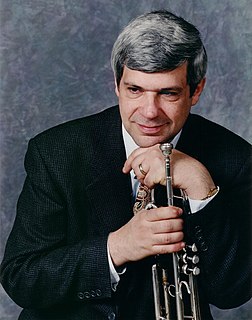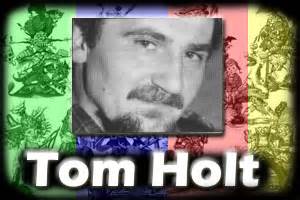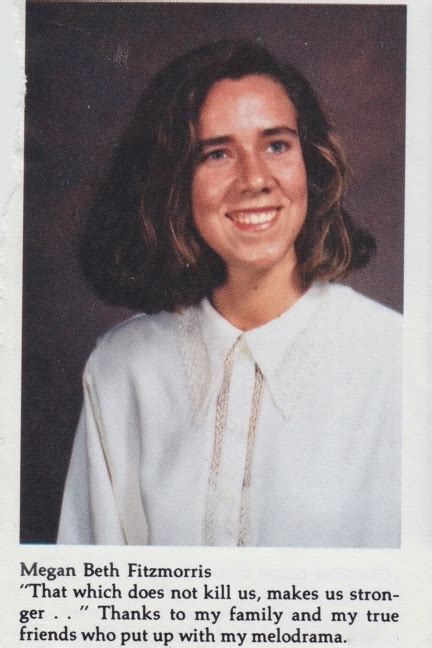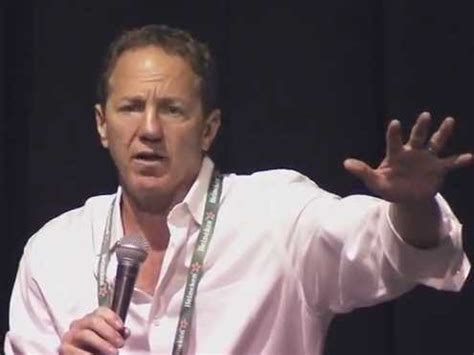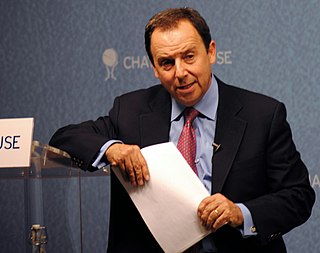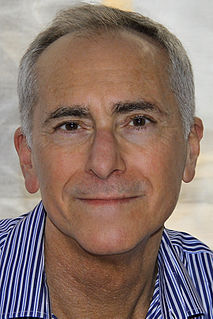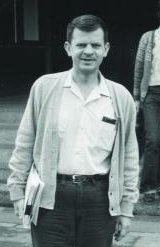Top 160 Princeton Quotes & Sayings - Page 3
Explore popular Princeton quotes.
Last updated on November 27, 2024.
I had no need to apologize that the look-wider, search-more affirmative action that Princeton and Yale practiced had opened doors for me. That was its purpose: to create the conditions whereby students from disadvantaged backgrounds could be brought to the starting line of a race many were unaware was even being run.
What makes a terrorist? Are the drivers primarily political or economic? Princeton economist Alan Krueger has made a great study of this question...What Makes a Terrorist lacks a question mark. That's because Krueger, marshaling persuasive statistics and analysis, comes down firmly on the side of politics, noting most terrorists are middle-class and well-educated.
At Princeton I wrote my junior paper on Virginia Woolf, and for my senior thesis I wrote on Samuel Beckett. I wrote some about "Between the Acts" and "Mrs. Dalloway'' but mostly about "To the Lighthouse." With Beckett I focused, perversely, on his novels, "Molloy," "Malone Dies," and "The Unnamable." That's when I decided I should never write again.
Only one American has given his life for Iranian democracy. He was a young idealist from Nebraska named Howard Baskerville. In 1907, fresh out of Princeton, Baskerville went to Iran as a schoolteacher. He found himself in the midst of a revolution against tyranny, and was carried away with passion for the democratic cause.
The bad things the U.S. health care system are that our financing of health care is really a moral morass in the sense that it signals to the doctors that human beings have different values depending on their income status. For example, in New Jersey, the Medicaid program pays a pediatrician $30 to see a poor child on Medicaid. But the same legislators, through their commercial insurance, pay the same pediatrician $100 to $120 to see their child. How do physicians react to it? If you phone around practices in Princeton, Plainsboro, Hamilton - none of them would see Medicaid kids.
Looking back over a decade one sees the ideal of a university become a myth, a vision, a meadow lark among the smoke stacks. Yet perhaps it is there at Princeton, only more elusive than under the skies of the Prussian Rhineland or Oxfordshire; or perhaps some men come upon it suddenly and possess it, while others wander forever outside. Even these seek in vain through middle age for any corner of the republic that preserves so much of what is fair, gracious, charming and honorable in American life.
Descartes' immortal conclusion cogito ergo sum was recently subjected to destruction testing by a group of graduate researchers at Princeton led by Professors Montjuic and Lauterbrunnen, and now reads, in the Shorter Harvard Orthodoxy:
(a) I think, therefore I am; or
(b) Perhaps I thought, therefore I was; but
(c) These days, I tend to leave that side of things to my wife.
It is relatively unusual that a physical scientist is truly an atheist. Why is this true? Some point to the anthropic constraints, the remarkable fine tuning of the universe. For example, Freeman Dyson, a Princeton faculty member, has said, 'Nature has been kinder to us that we had any right to expect.'
When I look at that record in light of the 1985 job application to the [Ronald] Reagan Justice Department, it's even more troubling.That document lays out an ideological agenda that highlights Judge Samuel Alito in belonging to an alumni group at Princeton that opposed the admission of women and proposed to curb the admission of racial minorities.
In such novels as This Side of Paradise and The Great Gatsby, Fitzgerald depicts the spirit of the hour which is usually about 4 a.m. His suave young men, always commuting between Princeton and The Plaza in Stutz Bearcats never sat still for long. It was too uncomfortable, with a large flask in the hip pocket.
And yet I know I am too young, that we're too young, for me to live my life only as it relates to you. If you had asked me to marry you the night you first told me about your acceptance, I would have embraced Princeton as part of a larger plan that involved me. I probably would have reacted differently. I might even had said yes. Alas, you didn't ask me then. You made plans for your future without me in mind, And that's okay. But how can you now ask me to arrange my life around you?
Albert Einstein, who discovered that a tiny amount of mass is equal to a huge amount of energy, which explains why, as Einstein himself so eloquently put it in a famous 1939 speech to the Physics Department at Princeton, 'You have to exercise for a week to work off the thigh fat from a single Snickers.'
Even more dramatic, Alex Todorov at Princeton has shown us that judgments of political candidates' faces in just one second predict 70 percent of U.S. Senate and gubernatorial race outcomes, and even, let's go digital, emoticons used well in online negotiations can lead to you claim more value from that negotiation. If you use them poorly, bad idea. Right? So when we think of nonverbals, we think of how we judge others, how they judge us and what the outcomes are. We tend to forget, though, the other audience that's influenced by our nonverbals, and that's ourselves.
And let's not forget that internally, we are, like all dying empires, being hollowed out from the inside in terms of infrastructure. I live near Philly, I live in Princeton. The school system is shattered with closings and layoffs. Libraries are being shuttered. Head Start is being cut back. Unemployment benefits are not being extended. You know, we've reached a point of both physical and emotional exhaustion.
With my academic achievement in high school I was accepted rather readily at Princeton and equally as fast at Yale, but my test scores were not comparable to that of my classmates. And that's been shown by statistics, there are reasons for that - there are cultural biases built into testing, and that was one of the motivations for the concept of affirmative action to try to balance out those effects.
I was in this public high school in Princeton, and it had this topnotch jazz program - if you were a musician of any kind of caliber, your holy grail was to be in that orchestra. It was that claim to fame of the school, of the town, other than the university. But it was better than the university band.
We don't like to talk about that in America, but there are classes in America. And she [Julia Child] was of a class of women who were wealthy, privately educated, went to Smith, moved in that sort of circle. She was conscripted into the OSS, which is the early CIA, which was all filled with Yalies and Princeton and Harvard people and a few women who were typing mostly but also had something to do.
I was born in an earlier generation and, as a group, my classmates at Blair Academy and Princeton University were as ethical, straightforward, and integrity laden as you could possibly imagine - perhaps not a 100% - but the overwhelming majority. I've been in business a long, long time and I simply cannot imagine seeking out cheating, greedy people.
We now know from a Princeton study that Superfund sites are causing higher rates of birth defects. We now know that there's no excusing the lack of moral urgency to do something about this environmental crisis. We see Flint, Michigan, for example, and the attention it's gotten, but what most Americans don't seem to realize is that this lead problem is not confined to just Flint. There are over 3,000 jurisdictions that have twice the lead levels in people's blood than Flint does. We're now seeing more people being exposed to the truth about environmental injustice in our country.
I have a very beautiful room that in my house that we bought in Princeton. It's glass on three sides, and you'd think that's the perfect place to write. Somehow in that nice room I feel too exposed, and I can notice I'm too distracted by things going on, so I end up writing in a not-very-nice office bedroom.
I was less angry at [Carl] Armstrong, though I was angry at the people who came to his trial: Dan Ellsberg, who ordinarily I respected a lot; Philip Berrigan; the guy who teaches at Princeton still - I can't remember his name. And they were saying - well, they were saying, really, what Arthur Koestler had people saying on "Darkness at Noon." The means were unfortunate and, sadly, someone died, but the end is what is important and this was a great symbolic - something or other - sign against the war in Vietnam.
I studied physics at Princeton when I was a college student, and my initial intention was to major in it but to also be a writer. What I discovered, because it was a very high-powered physics program with its own fusion reactor, was that to keep up with my fellow students in that program I would need to dedicate myself to math and physics all the time and let writing go. And I couldn't let writing go, so I let physics go and became a science fan and a storyteller.
I served for 42 years on the board of trustees of the largest Presbyterian seminary, Princeton Theological Seminary, and we had brilliant people - teachers and students both-but they did not come up with many new concepts. They weren't invited to come up with new concepts. Anybody who had come up with a new concept would have been under suspicion for being out of step with the tradition or out of step with the teachings of the church.
Two sons, they'll both be presidents after they win their Nobel Prizes. And the daughters, they'll be prima ballerinas before they become the president of Princeton and start their Internet company. And I just started to think about What's the conventional load of those expectations you carry around? You have to pull them out one by one and smash them in the corner. You realize the pile is quite high. But in a way, it becomes oddly liberating to do that.
Woodrow Wilson is reported to have told a Princeton colleague, shortly after the 1912 election, "It would be an irony of fate if my administration had to deal chiefly with foreign problems, for all my preparation has been in domestic matters." In the event, Wilson's early months were marked by substantial domestic legislative accomplishment. Unfortunately, after Europe plunged into the Great War in August 1914, Wilson's leadership was uncertain.
I developed a mania for Fitzgerald - by the time I'd graduated from high school I'd read everything he'd written. I started with 'The Great Gatsby' and moved on to 'Tender Is the Night,' which just swept me away. Then I read 'This Side of Paradise,' his novel about Princeton - I literally slept with that book under my pillow for two years.
Let Girls Learn issue has always been personal for me. I grew up in a working-class neighborhood on the South Side of Chicago where most folks, including my parents, didn't have college degrees. But with a lot of hard work - and a lot of financial aid - I had the chance to attend Princeton and Harvard Law School, and that gave me the confidence to pursue my ambitions.
When I was in graduate school in Princeton, I was told to take three courses. One of them to work on really hard, another to work on moderately hard, and the third one just to absorb. In my case, I never showed up to the latter class, taught by Robert Gunning, on Several Complex Variables. Several Complex Variables (Cn) was starting to get vary fashionable then, but I decided to specialize in n=1/2.
Amory took to writing poetry on spring afternoons, in the gardens of the big estates near Princeton, while swans made effective atmosphere in the artificial pools, and slow clouds sailed harmoniously above the willow. May came too soon, and suddenly unable to bear walls, he wandered the campus at all hours through starlight and rain.
One day at Princeton, I noticed there were dead birds on the pavement between the campus buildings, where very large trees were. It turns out it was DDT. At the time, in the early '50s, no one thought DDT was dangerous to anybody but insects. I went down to the Daily Princetonian, the college paper, and tried to persuade them to do a story. They said, "Naw, there's nothing wrong." But that taught me a very important lesson. One, that newspaper people can get very jaded. Second, that you might know something, like an expert chemistry professor, you are not going to apply what you know.
Her blog was doing well, with thousands of unique visitors each month, and she was earning good speaking fees, and she had a fellowship at Princeton and a relationship with Blaine - "You are the absolute love of my life," he'd written in her last birthday card - and yet there was cement in her soul. It had been there for a while, an early morning disease of fatigue, shapeless desires, brief imaginary glints of other lives she could be living, that over the months melded into a piercing homesickness.
I quit comics in 1988 and trained as a bus driver. I used to drive those big Greyhound coaches out of New York Port Authority and down to Princeton, New Jersey. It was, hands down, the best job I ever had, and I profoundly regret having left it. I kept that job the entire time I was on staff at DC Comics in the '90s.
